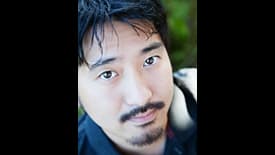Bioinformatics professor receives NSF funding to research reprogramming cells to cure genetic disorders

College of Computing and Informatics Assistant Professor of Bioinformatics Way Sung was awarded a $670,000 grant from the National Science Foundation (NSF) for the project, “The Evolution and Reprogramming of DNA Replication Fidelity.”
“Mutations are generally bad to the health of an organism and can lead to cancer and other genetic diseases,” said Sung. “The goal of this work is to reprogram cells to enhance their ability to repair and resist DNA mutations. The ultimate goal of our work is to extend cellular longevity, increase cellular health and reduce cancer formation.”
He added, “This funding will allow us to greatly increase the number of different enzymes that we can test and modify.”
DNA is constantly subject to mutations, and understanding how these mutations arise and are repaired is a critical step to preventing and curing genetic disorders. The replication and repair enzymes that control DNA damage are found in every organism, but their efficiency vary greatly across known life.
In this project, Sung and his team will take high-fidelity replication enzymes that have evolved under natural conditions and transfer them into other organisms with low-fidelity replication enzymes. Furthermore, the project will investigate how varying replication fidelity can influence the survival of an organism as well as shape the structure of the genome. By reprogramming replication fidelity, the project seeks to reduce cellular mutation rates, increase cellular longevity and reduce cancer formation in eukaryotic cells.
This work will be performed by K-12, undergraduate and graduate students and will include bi-yearly genetic engineering workshops that will increase scientific participation and promote the careers of minorities in STEM research.
“We will involve multiple K-12 students through the North Carolina Math/Science Education Network, whereby a local high school student spends 12 weeks engaged in intense research activity within our lab,” said Sung. “In addition, this grant will fund a diverse group of graduate and undergraduate researchers within the Sung Lab and includes funding for a bi-yearly summer workshop for student training in genetic engineering. Developing a diverse biomedical workforce is a key goal of NSF as well as CCI.”
Sung, a New Hampshire native, completed a Ph.D. in molecular, cellular and developmental biology from the University of New Hampshire. He also performed postdoctoral research at Indiana University, prior to joining UNC Charlotte.